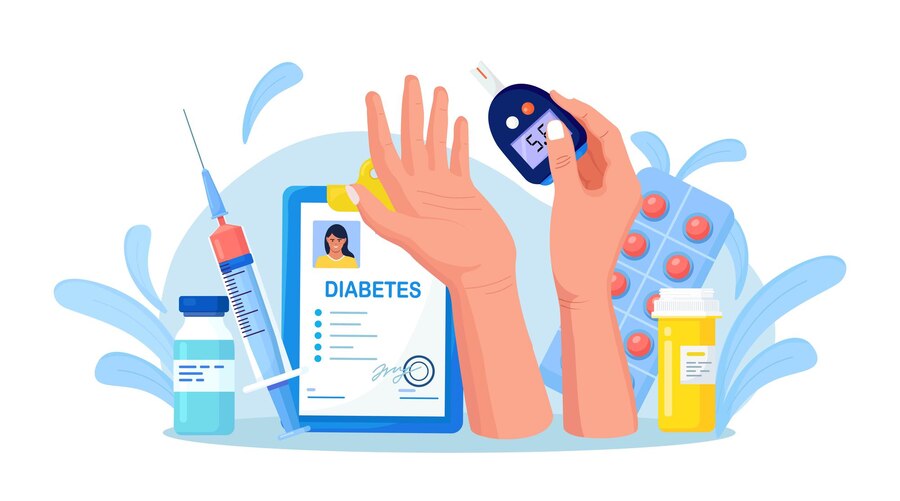
Diabetes is a complex chronic illness that affects millions of people globally. It occurs when the body cannot properly regulate blood sugar levels, leading to serious health complications if left unmanaged. Despite advancements in medicine, diabetes remains a life-changing condition that presents numerous challenges for those living with it.
Types of Diabetes
Type 1 Diabetes: Often diagnosed in childhood, this form of diabetes is an autoimmune disease where the body attacks its insulin-producing cells. Individuals with Type 1 diabetes rely on insulin injections or pumps for survival.
Type 2 Diabetes: More common in adults, Type 2 diabetes is linked to lifestyle factors and genetics. It occurs when the body becomes resistant to insulin or doesn’t produce enough of it.
Gestational Diabetes: A temporary condition that affects some pregnant women, increasing their risk of developing Type 2 diabetes later in life.
Each type requires unique approaches to management, but all involve significant lifestyle adjustments.
Challenges Faced by People with Diabetes
Medical Complications Diabetes can lead to severe health problems, including cardiovascular disease, neuropathy (nerve damage), kidney disease, and eye damage (retinopathy). Without proper management, these complications can become life-threatening.
Emotional and Psychological Impact The constant need for monitoring blood sugar levels, sticking to strict routines, and fear of complications can lead to stress, anxiety, and depression. Many individuals also struggle with the emotional burden of being diagnosed with a lifelong condition.
Cost of Care Diabetes management is expensive. In many countries, the cost of insulin, medications, glucose monitoring equipment, and doctor visits places a significant financial burden on patients and their families.
Dietary Adjustments A healthy diet is central to diabetes management, but it can be restrictive. People with diabetes must limit their intake of sugary and high-carbohydrate foods, which often requires careful planning and preparation. Eating out or attending social gatherings can be particularly challenging.
Social Stigma and Misconceptions Misunderstandings about diabetes often lead to stigma. People with diabetes may face judgment or blame, especially those with Type 2 diabetes, which is frequently (but not always) associated with lifestyle factors. This stigma can discourage individuals from seeking support or disclosing their condition.
Managing Hypoglycemia and Hyperglycemia Balancing blood sugar levels is critical, but even with careful management, extreme fluctuations can occur. Hypoglycemia (low blood sugar) can cause confusion, shakiness, and fainting, while hyperglycemia (high blood sugar) can result in long-term complications.
Innovations and Coping Strategies
Technological Advances Modern devices like continuous glucose monitors (CGMs), smart insulin pens, and insulin pumps have made diabetes management more precise and less invasive.
Education Diabetes education programs empower individuals to understand and manage their condition effectively, reducing the risk of complications.
Support Networks Family, friends, and peer groups provide emotional and practical support, helping individuals cope with the demands of diabetes.
Healthy Lifestyle Regular exercise, a balanced diet, and stress management techniques are essential in maintaining stable blood sugar levels and improving overall well-being.
Conclusion
Living with diabetes is challenging, but with the right tools, knowledge, and support, people with diabetes can lead healthy and productive lives. Awareness campaigns and policy changes aimed at making care more affordable and accessible are critical in addressing the global burden of diabetes. Through innovation and community support, a better future for individuals with diabetes is achievable.